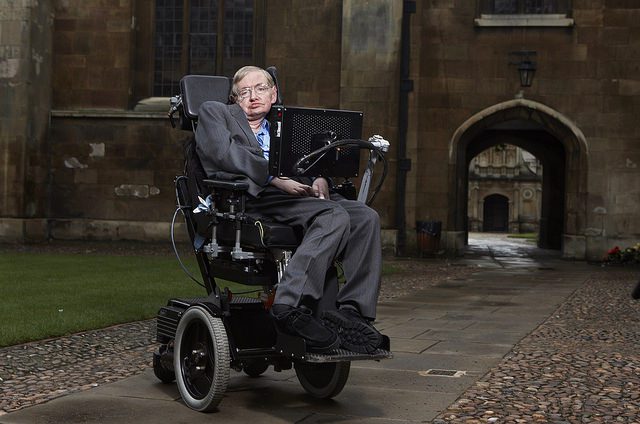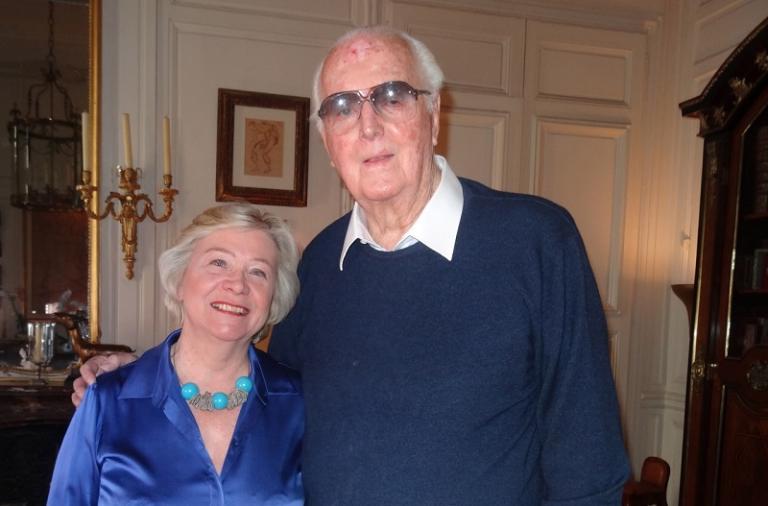 Dr. Stephen Hawking passed away early in the morning of Wednesday, March 14, 2018. The legendary scientist was 76 years old. Dozens of scientists from around the world have spoken out recognizing Hawking’s many accomplishments and grieving his loss. Neil DeGrasse Tyson, astrophysicist and director of the Hayden Planetarium, wrote that “[Hawking’s] passing has left an intellectual vacuum in his wake. But it’s not empty. Think of it as a kind of vacuum energy permeating the fabric of spacetime that defies measure.” Raphael Bousso, one of Hawking’s former students, praised Hawking’s ability to both do research on the cutting edge of science and explain his discoveries to the public in ways a layman could understand. “These are two distinct skills,” Bousso said. “Stephen excelled at both.”
Dr. Stephen Hawking passed away early in the morning of Wednesday, March 14, 2018. The legendary scientist was 76 years old. Dozens of scientists from around the world have spoken out recognizing Hawking’s many accomplishments and grieving his loss. Neil DeGrasse Tyson, astrophysicist and director of the Hayden Planetarium, wrote that “[Hawking’s] passing has left an intellectual vacuum in his wake. But it’s not empty. Think of it as a kind of vacuum energy permeating the fabric of spacetime that defies measure.” Raphael Bousso, one of Hawking’s former students, praised Hawking’s ability to both do research on the cutting edge of science and explain his discoveries to the public in ways a layman could understand. “These are two distinct skills,” Bousso said. “Stephen excelled at both.”
Hawking’s best known explanation of his research is his book “A Brief History of Time: From the Big Bang to Black Holes.” The book captured the imagination of the public, selling more than 10 million copies and inspiring a 2014 film about Hawking’s life called “The Theory of Everything.” The film was nominated for several Academy Awards and Eddie Redmayne won the Oscar for best actor for his portrayal of Hawking. As Michio Kaku, a professor for theoretical physics at the City University of New York, said, “Not since Albert Einstein has a scientist so captured the public imagination and endeared himself to tens of millions of people around the world.”
As a scientist, Hawking was the leading mind in studies focused on black holes and gravity. He discovered that black holes would eventually fizzle, leaking radiation and particles, before exploding and disappearing over the ages. This work led to a turning point in modern physics and was hailed as the first great landmark in the struggle to find a single theory of nature that successfully married quantum mechanics and Einstein’s theory of relativity. His revolutionary discovery was called Hawking radiation.
Despite his extraordinary contributions to science, no one expected Hawking to finish his studies. When he was 22, Hawking was diagnosed with amyotrophic lateral sclerosis, a rare neuromuscular disease also known as Lou Gehrig’s disease. He was expected to only survive for two or three more years. Hawking, however, defied the odds and went on to have three children. His bodily control was reduced to flexing his fingers and moving his eyes, but his spirit remained unbroken. He celebrated his 60th birthday by going up in a hot air balloon and rode the zero-gravity aircraft, the Vomit Comet, to celebrate turning 65. According to Hawking, he went on such adventures because he wanted “to show that people need not be limited by physical handicaps as long as they are not disabled in spirit.” His adventurous nature, determination and sense of humor left people in awe. “What a triumph his life has been,” said Martin Rees, a Cambridge University cosmologist, astronomer royal of Britain and long-time colleague of Hawking. “His name will live in the annals of science; millions have had their cosmic horizons widened by his best-selling books; and even more, around the world, have been inspired by a unique example of achievement against all the odds — a manifestation of amazing willpower and determination.”
Hawking’s birth, life and death were all dominated by science. He was born on January 8, 1942, which was, he was proud to say, 300 years to the day of Galileo’s death. The date of his death was equally significant: March 14 was Albert Einstein’s birthday. Hawking also wanted science to follow him to the grave. In 2002, he said he wanted the formula for Hawking radiation engraved on his tombstone. Whether this legendary scientist will get his wish or not has yet to be seen, but there is no doubt that the world is mourning the loss of a man whose determined spirit was the only thing as big as his genius.


